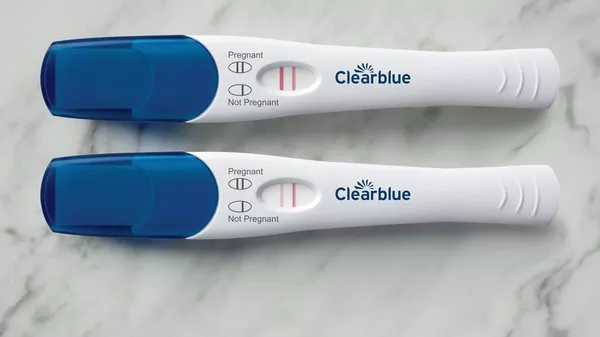Missing a period can be a source of anxiety for many women, especially when a negative pregnancy test adds further confusion. While pregnancy is the most common cause of missed periods, there are several other factors that can contribute to menstrual irregularities. In this article, we will explore the potential reasons for a missed period despite a negative pregnancy test, shedding light on the various factors that can affect the menstrual cycle.
Understanding the Menstrual Cycle:
The menstrual cycle is a complex interplay of hormonal changes that prepares the uterus for potential pregnancy each month. The average menstrual cycle lasts between 21 and 35 days, with the first day of bleeding marking the beginning of a new cycle. A regular menstrual cycle reflects the harmonious functioning of the reproductive system.
Common Causes of Missed Periods with Negative Pregnancy Tests:
1. Stress and Emotional Factors:
Physical or emotional stress, anxiety, and significant life changes can disrupt the delicate balance of hormones and affect the timing of ovulation and menstruation. Stress-induced hormonal imbalances can lead to irregular or missed periods.
2. Hormonal Imbalances:
Fluctuations in hormone levels can impact the menstrual cycle. Conditions such as polycystic ovary syndrome (PCOS), thyroid disorders, or hormonal imbalances stemming from excessive exercise or significant weight changes can cause menstrual irregularities. These imbalances can disrupt ovulation or lead to anovulatory cycles, where an egg is not released.
3. Medications and Medical Conditions:
Certain medications, including hormonal contraceptives, antipsychotics, and corticosteroids, can influence the menstrual cycle. Additionally, underlying medical conditions such as diabetes, ovarian cysts, or reproductive disorders can contribute to missed periods.
4. Age-related Changes:
As women approach perimenopause, the stage leading up to menopause, hormonal fluctuations become more pronounced, resulting in irregular periods. Perimenopause typically begins in the late 30s or early 40s, but can occur earlier in some women. During this phase, menstrual cycles may become shorter or longer, and periods may be irregular or missed altogether.
5. Weight Changes and Eating Disorders:
Significant weight changes, whether weight gain or weight loss, can disrupt hormonal balance and affect menstrual regularity. Eating disorders, such as anorexia or bulimia, can also lead to missed periods due to inadequate nutrition and disruptions in hormone production.
6. Excessive Exercise:
Intense or excessive exercise can impact the menstrual cycle. Vigorous physical activity, particularly when coupled with low body fat levels, can lead to hormonal imbalances and missed periods. This is often referred to as exercise-induced amenorrhea.
7. Poor Sleep and Disrupted Sleep Patterns:
Sleep plays a crucial role in hormonal regulation. Chronic sleep deprivation or disrupted sleep patterns can disrupt the delicate hormonal balance and lead to missed or irregular periods.
Coping with Missed Periods and Negative Pregnancy Tests:
1. Track Your Menstrual Cycle:
Maintain a menstrual calendar or use a smartphone app to track your periods, noting any changes or irregularities. This information can be helpful when discussing your menstrual history with healthcare providers.
2. Minimize Stress:
Implement stress management techniques such as regular exercise, meditation, deep breathing exercises, or engaging in activities that bring you joy. Prioritize self-care and create a balanced lifestyle that promotes overall well-being.
3. Maintain a Healthy Lifestyle:
Follow a balanced diet, ensuring adequate nutrition and calorie intake. Regular meals and a focus on nourishing foods can support hormonal balance. Aim for regular exercise, but avoid excessive or intense workouts that may disrupt the menstrual cycle.
4. Prioritize Sleep:
Ensure you are getting enough restful sleep each night. Create a sleep routine, practice good sleep hygiene, and establish a comfortable sleep environment.
5. Consult with a Healthcare Provider:
If you experience persistent or recurrent missed periods, it is advisable to consult with a healthcare provider. They can evaluate your medical history, conduct a physical examination, and order relevant tests to identify the underlying cause of your menstrual irregularities.
6. Medical Treatment:
Depending on the underlying cause, medical treatments may be recommended. Hormonal therapies, such as oral contraceptives or hormone replacement therapy, may be prescribed to regulate the menstrual cycle. In cases of underlying medical conditions, treatment of the specific condition may restore regular periods.
Conclusion:
A missed period combined with a negative pregnancy test can be puzzling and lead to understandable concern. However, it is important to remember that various factors, aside from pregnancy, can affect the menstrual cycle. Stress, hormonal imbalances, medications, medical conditions, age-related changes, weight changes, excessive exercise, and sleep disruptions are among the many potential causes of missed periods. By tracking your menstrual cycle, managing stress, maintaining a healthy lifestyle, prioritizing sleep, and seeking guidance from healthcare providers when necessary, you can navigate the challenges of menstrual irregularities. Remember that every woman’s body is unique, and it is normal for occasional variations in the menstrual cycle to occur. If you have persistent concerns or experience prolonged irregularities, it is best to consult with a healthcare professional who can provide personalized guidance and address any underlying issues that may be contributing to your missed periods.


